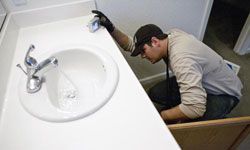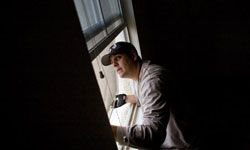Key Takeaways
- Home inspectors might not be liable for missed defects, and not all carry comprehensive insurance, making it crucial for homeowners to select inspectors with "Errors and Omissions" coverage.
- Inspectors should not offer repair services for issues they identify, to avoid conflicts of interest. The American Society of Home Inspectors prohibits its members from doing so.
- Inspections focus on the house itself, not surrounding grounds or structures, and may not include roof inspections or identify hidden problems behind walls or under floors.
Nearly two in five existing homes suffer from some type of major defect. According to the Realty Times, these types of defects can cost as much as $15,000 to repair. Protect yourself from unexpected repair costs by investing in a home inspection before you buy a house. Not only can a qualified home inspector save you money in the long run, but many banks and other lending institutions require an inspection as part of the home buying process.
As you choose a home inspector, keep in mind that skill and experience may vary, and not all candidates have your best interests at heart. Take a look at these top 10 things home inspectors don't want you to know to learn how to get the most out of your next home inspection.
Advertisement





